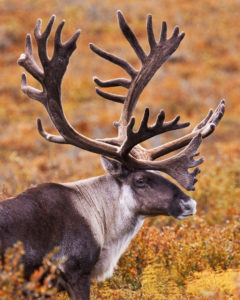We have much more to do and your continued support is needed now more than ever.
Fighting for the Environment: Women Making History

This month is a great opportunity to reflect on the women who serve as our conservation role models, like Rachel Carson, who exposed the environmental damage done by DDT in her book Silent Spring, and Wangari Maathai, who started a tree planting movement in Africa. It is also a great time to recognize some of the women who are making conservation history in 2016.
These women continue to fight for the environment on challenges such as the Keystone XL pipeline, the Clean Power Plan, and the climate agreement reached in Paris this last December.
Elizabeth Kolbert
Elizabeth Kolbert is a staff writer for the New Yorker and the author of Field Notes from a Catastrophe, a book about the impacts of climate change, and The Sixth Extinction, a book about current global biodiversity loss which won the 2015 Pulitzer Prize. She has written for the New Yorker extensively on the impacts of climate change, including a three-part series called “The Climate of Man,” which won national recognition. With millions of copies sold, Kolbert has opened eyes around the world to the need for strong conservation policy.
Janet McCabe

Jane Kleeb
Jane Kleeb is the founder of Bold Nebraska and an instrumental player in the fight against the Keystone XL pipeline. Kleeb’s mobilization of landowners against TransCanada, the pipeline company, was a major factor in the eventual failure of the project. With the help of Nebraska farmers, ranchers, and sportsmen, Kleeb redefined conservation for many rural communities and pushed forward the concept of responsible stewardship for future generations. Without her dedication, millions of barrels of oil from the tar sands in Canada would be traveling to the Texas Gulf.
Winona LaDuke

LaDuke and her organization have been key participants in the fight against transporting fracked oil from the tar sands in Canada through the Enbridge pipelines around the Great Lakes region. Like Keystone XL, Enbridge poses a risk to unique and vulnerable ecosystems, especially those throughout the Great Lakes.
Barbara Bramble
Barbara Bramble is the Senior Director of International Wildlife Conservation at the National Wildlife Federation. She was an important voice for conservation in last December’s game-changing Paris Agreement on climate. She has dedicated much of her life to severing the link between deforestation and agricultural practices. With the threat of climate change redefining the movement for environmental conservation, the need to protect our natural carbon storing resources around the globe has become paramount. Bramble’s tireless efforts in conservation have helped ensure our natural systems are able to help us combat climate change.
It is important to protect wildlife and wild places so that future generations will inherit a conservation legacy that enables the continued enjoyment of our natural world. These women have helped ensure this outcome, and their efforts in conservation will inspire others to follow in their footsteps.
Take Action Stand with these inspiring women in the fight against climate change by taking action in support of the Clean Power Plan. Reduce the carbon pollution from power plants that causes climate change.





















